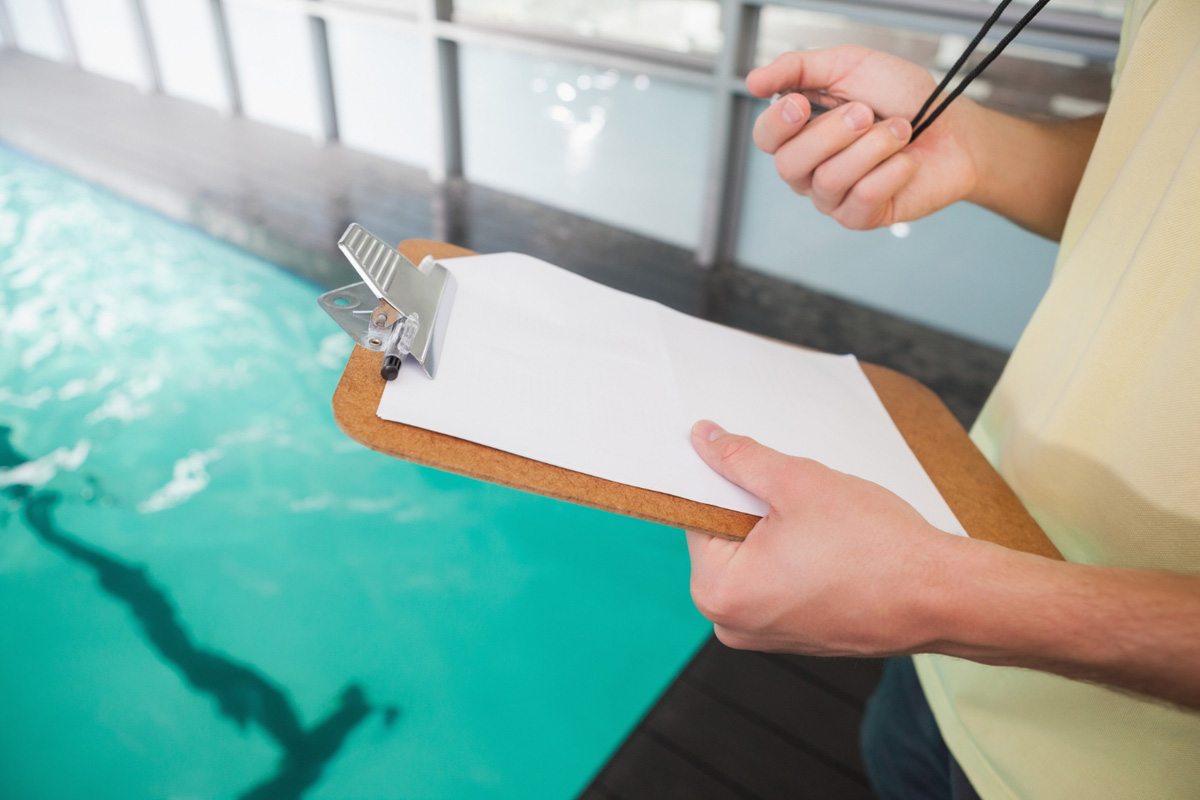Common Pool Inspection Failures and How to Avoid Them
A home with a pool must be fascinating for you. To keep a pool safe and functional, you need to conduct regular inspections and required maintenance.
A pool inspection can uncover problems you didn’t even know existed. Trust us; common pool inspection failures can get expensive fast.
They need to be detected and fixed as soon as possible. Being proactive, you can avoid them too and save your pool as well as your wallet.

Why are Pool Inspections Important?
Pool inspections are essential because certified inspectors check every structural and functional element linked to the pool. It ensures safety and code compliance. A proper pool inspection checks for:
- Structural integrity of the pool
- Pool equipment problems
- Safety compliance
- Electrical and plumbing systems
- General wear and tear
When something is not up to code or not working properly, you can’t just “hope it fixes itself,” and when you are in the process of buying or selling a home, pool inspection issues can delay or kill the deal.
Common Pool Inspection Failures
Some pool safety violations can cause failure of the inspection, such as:
Faulty or Damaged Pool Equipment
Wearing out or improperly functioning equipment is among the common issues with a pool. Think pumps that don’t pump, filters that don’t filter, or heaters that leave your pool feeling like a chilly lake. The following might be the reasons behind faulty pool equipment:
- Broken or leaking pool pumps
- Clogged filters
- Air leak in suction lines
- Timers or automation systems are not working
Cracks and Structural Damage
Even the small cracks in your pool’s shell can lead to big problems over time. There can be leaks, erosion, or foundation issues. The pool inspectors check for the following:
- Surface cracks in plaster or tile
- Structural cracks that go deeper
- Leaking returns or skimmers
- Uneven pool decks or coping
These problems might be due to ground movement or poor soil conditions, improper installation, the old age of the pool, or water freezing and thawing.
Pool Safety Violations
The pool inspectors look at everything when it comes to safety. They check fencing and latches to covers and drain systems. If there is a pool safety violation, it is a huge red flag found during an inspection. While assessing the safety features, the most common issues found are:
- No self-latching gate
- Inadequate pool fencing
- Missing anti-entrapment drain covers
- No pool alarms or emergency shutoffs
If any of these dangerous issues are found in your pool and someone gets hurt, you could be fined.
Electrical System Failures
We all know that water and electricity are not best friends. That’s why pool inspectors pay extra attention to the electrical system. They check for:
- Improperly bonded equipment
- Exposed wires
- Outdated GFCI outlets
- Loose or corroded ground
Any issue with these can result in shocks, fires, or electrocution. It is not something that can be ignored.
Water Chemistry Problem
Water quality may not seem like a deal-breaker, but it’s a major contributor to long-term pool health. Inspectors may take chemical readings or ask for maintenance records. Some of the common issues related to water chemistry are:
- High or low pH levels
- Unbalanced chlorine or sanitizer
- Cloudy or green water
- Scaling on tile or equipment
These issues might be due to a poor maintenance schedule or incorrect use of chemicals.
Poor Plumbing and Circulation
Poor circulation means poor filtration and unhealthy water. Moreover, the leaky pipes can erode soil and cause structural damage. Such issues remain invisible unless a professional inspects the system. The red flags to notice are:
- Low flow or poor circulation
- Leaks in return or suction lines
- Blocked skimmers or drains
Neglected Pool Interiors
Is your pool plaster faded, stained, or rough? These may seem cosmetic, but they’re often signs of underlying issues. You should pay attention to whether there are:
- Pitted plaster from poor water chemistry
- Stains from metals or algae
- Rough surfaces that can cut feet or snag swimsuits
How to Avoid Pool Inspection Issues
The proper way to fix the issues can only be suggested by the certified inspectors. However, you can avoid the common issues with the help of the following recommendations:
- Get your pool serviced regularly
- Hire a licensed pool technician for annual maintenance
- Inspect the pool’s surface regularly for visible cracks
- Install self-closing, self-latching gates
- Install GFCI protection on all pool-related circuits
- Test water weekly with a reliable test kit
- Keep chemicals stored safely and probably labeled
- Monitor water leaks
- Check around the pump and plumbing line for moisture
- Get your pool inspected regularly to catch the issues before they turn into bigger problems
Final Thoughts
Whether you are prepping to sell or buy a house with a pool, or just want to avoid costly repairs, staying ahead of common pool inspection failures can save you time, money, and a lot of stress. All you need to do is be proactive with the pool maintenance. This way, you can stay ahead of the problems.
To keep your pool in the best possible condition, hire professional pool inspectors and know about all present and potential issues in detail.
You can consult with Inspect360 if you have any concerns regarding the pool or the systems associated with it.
